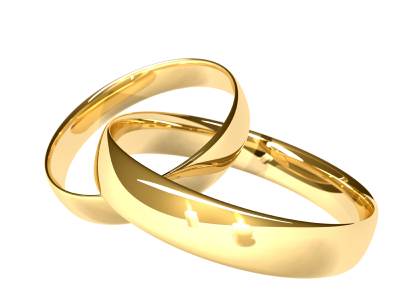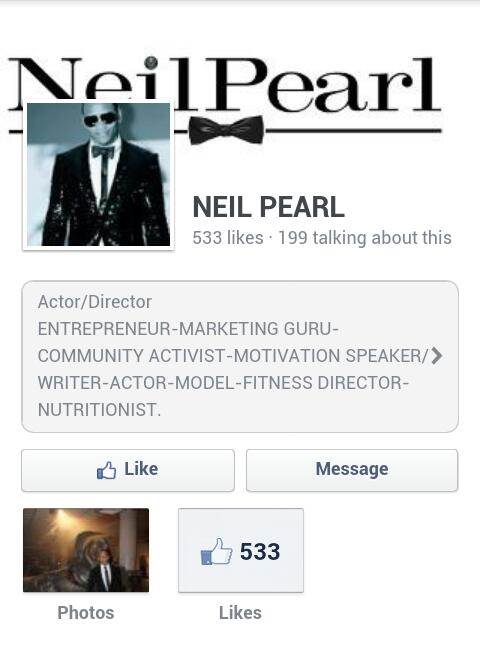20 THINGS A WOMAN SHOULD NEVER DO

20 things women should never, ever do
1. Do not shave off your eyebrows only to redraw them with a pencil… it makes no sense
2. Do not put on too much make up, you end up looking like you came out of the make-up factory.
3. Do not wear a vest or sleeveless top without shaving your armpits or without a bra underneath
4. Do not leave chipped nail polish to wear off on its own, there’s a reason why they sell nail polish remover.
5. If you can’t afford good quality weaves, don’t bother.
6. Do not do artificial nails that makes you look like a drag queen, simple is always sexy.
7. See-through leggings or a top used as a dress when you are out in public is a hell-to-the-no!
8. Never do things for a man with a hope of getting something in return, expectations are dangerous. Do it because you simply want to.
9. Never contradict what your man says – in public.
10. Never stalk the man that left you for the other woman.
11. Do not share your best friend’s personal life with every Tom, Dick and Harry.
12. Women should never act on distress in relationships like checking your man’s phone, nagging him to death, and acting like a paranoid freak. You will simply release him to someone else by doing so.
13. Never dish out your entire family drama on a first date. The guy just wants to know about you.
14. Stop obsessing over your body. It’s good to eat healthy and work out but let’s leave it at that.
15. Never over-accessorize. stop looking like a Christmas tree.
16. Never leave home without lipgloss, your phone and most of all, your dignity.
17. Never leave your used sanitary towel in the toilet for the next person to see. Women please!
18. Never wear very high heels if you can’t do the Naomi Campbell walk. You look like a drunk grasshopper.
19. Never wear short skirts and low cut tops when off to an interview. You will create the wrong impression.
20. And finally, ‘Never wish to be like any other woman. There are others out there envying you for who you are’ – Author unknown
Follow Bongiwe on Twitter: @bongirand2
WTF AFRICA- HUSBAND TAKES IRON TO WIFE’S FACE IN BRAWL
POLICE in Bulawayo have arrested a man after he allegedly burnt his wife with an iron in the face during an argument over the use of electricity.
The incident occurred sometime in March but came to light recently after Mgcini Moyo was hauled before Western Commonage magistrate Mrs Taney Dube on a charge of physical abuse.
It is reported that on the day at about 6am, Moyo who was preparing to get to work, took an iron and as he was about to plug it, his wife Thobekile Sibanda interjected and told him not to do so.
That was because the cash power meter was registering that they were running out of electricity.
Moyo was reportedly angered by his wife’s orders and threatened to beat her up.
The woman went on telling her husband who seemed defiant that they risked going for days without electricity because their pockets were also running low.
It is said that a war of words erupted between the two.
While Moyo vowed to go on and plug the iron, Sibanda made it known to him that he was not going to have it easy.
It is reported that true to his stance, Moyo plugged the iron after giving his wife a stern warning.
Moments after the iron had heat up, Moyo is alleged to have unplugged it and instead of ironing his clothes he “ironed” his wife’s left side of the face.
As the woman was still trying to come to terms with her husband’s actions, the man placed the hot iron on her right shoulder.
As expected, the woman groaned in anguish. She later made her way to hospital while Moyo found himself paying a courtesy call at a police station.
He was subsequently brought before Western Commonage magistrate Mrs Taney Dube on a charge of physical abuse.
He was remanded to 22 April.
WHY SHOULD WE PRAISE AND WORSHIP- GOODMORNING
What is true biblical worship?
Why Should We Praise? What is Praise? Examples of Praise from the Bible
Get the code to add this video to your MySpace profile / website.
What is worship? The answer to this question is important, not only because Christians should know what worship is, but in discovering what worship is, we also find out who can be worshipped. Since the Bible was originally written in Hebrew and Greek, we need to begin our study of worship by looking at the Greek and Hebrew words that are translated “worship.” Unfortunately, because of the way the Greek and Hebrew words for “worship” have been translated into English, it can be difficult to learn correctly about worship from an English version of the Bible.
The Hebrew word shachah and the Greek word proskuneo account for more than 80% of the appearances of the word “worship” in most English versions of the Bible, so these are the two words with which we want to concern ourselves. There are a few other words that are occasionally translated “worship” but have a more specific meaning outside of the idea of worship, and really should be translated differently. An example would be the Greek word latreuo, which means “to serve,” but in a few cases is translated “to worship.”
A study of the Hebrew word shachah and the Greek word proskuneo reveals that both these words mean “to bow down.” The Hebrew word shachah (Strong’s number 7812) is used of bowing or prostrating oneself, often before a superior or before God. [1] In the King James Version, it is translated by a number of different English words, including: “worship” (99 times), “bow” (31 times), “bow down” (18 times), “obeisance” (9 times), and “reverence” (5 times).
The Greek word proskuneo (Strong’s number 4505) comes from the Greek words pros, “to” or “toward,” and kuneo, “to kiss.” It literally means to kiss the hand to (toward) someone in token of reverence, and among the Orientals, to fall upon the knees and touch the ground with the forehead as an expression of profound reverence. Hence, in the New Testament it means kneeling or prostration to do homage or make obeisance, whether in order to express respect or to make supplication. [2]
The examples of “worship” in the Bible confirms that in the biblical culture, people bowed down before those to whom they wanted to show respect or honor. Lot “worshipped” (shachah) the strangers who came to Sodom even though he had never seen them before. He prostrated himself before them to show them respect (Gen. 19:1). Moses “worshipped” (shachah) his father in law, whom he respected and honored (Exod. 18:7). Abigail “worshipped” (shachah) David. She honored him by prostrating herself before him. These three examples can be multiplied many times over, but they show that when someone wanted to honor another, he would fall down before him. The act of falling down is called “worship,” and reveals the heart of the worshipper—respect and honor towards the one being worshipped.
Many cultures besides the biblical culture have the custom of bowing to show respect or honor. The Japanese and Chinese bow to those they respect. In the courts of Europe it was customary to bow (or for women, to curtsy) to those of higher rank. In fact, even in the colonial culture of the United States it was common for men to bow in respect of one another and for the women to curtsy to show honor or respect, and occasionally we still see bowing and curtsying today.
In some churches the custom of bowing before God has been modified into kneeling or genuflecting. For example, in the Roman Catholic Church people often genuflect, a shallow bow of the knee, to show their respect to God. In most protestant churches, although people no longer perform a full bow before the Lord, people “bow” their heads in prayer as a sign of respect. It is important to realize that in both biblical and modern “worship” (bowing down), the outward act of bowing reveals the inner heart of respect and honor.
Why do we use the English word “worship” at all? Our word “worship” comes from the Old English “weorthscipe,” which means worthiness. We “worship” someone because they are “worth” the respect they receive. In British English, “Worship” was actually used as a title for various officials, usually magistrates and some mayors. Thus even in the derivation of the English word “worship” we see that it was not exclusively used of God or Jesus, but was used to designate someone worth the respect they received.
When the words shachah appears in the Hebrew text, or proskuneo in the Greek text, they usually refer to the action of bowing down, and we can translate them that way into English, as the following examples show.
Genesis 23:7
Then Abraham rose and bowed down [shachah] before the people of the land, the Hittites.
Genesis 33:3
He himself [Jacob] went on ahead and bowed down [shachah] to the ground seven times as he approached his brother [Esau].
Genesis 42:6
Now Joseph was the governor of the land, the one who sold grain to all its people. So when Joseph’s brothers arrived, they bowed down [shachah] to him with their faces to the ground.
Matthew 18:26
“The servant fell on his knees [proskuneo] before him. ‘Be patient with me,’ he begged, ‘and I will pay back everything.’
It is clear from the verses above that people “bowed down to,” or “worshipped” other people. A study of the Greek and Hebrew words and how they are translated shows something else—something that has misled many Christians. In many Bible versions, when the words shachah or proskuneo are used of one person to another, the translators use the English words “bow down” or something similar. However, when shachah or proskuneo refers to a person “bowing down” before God or Jesus, the translators almost always use the English word “worship.” The three examples below are typical.
Exodus 24:1
Then he said to Moses, “Come up to the LORD, you and Aaron, Nadab and Abihu, and seventy of the elders of Israel. You are to worship [shachah] at a distance,
Exodus 33:10 (NASB)
When all the people saw the pillar of cloud standing at the entrance of the tent, all the people would arise and worship [shachah], each at the entrance of his tent.
John 4:24
God is spirit, and his worshipers must worship [proskuneo] in spirit and in truth.”
The verses above reveal a pattern that has caused many Christians to misunderstand “worship.” When the Hebrew or Greek words for worship refer to men “worshipping” men, the translators use the English words “bow down.” However, when the act of worship is toward God or Jesus, then the translators use the English word “worship” in their Bibles. This way of translating understandably leads the English reader to believe that only God and Jesus are “worshipped.” How can a person reading the English Bible be expected to know that biblical “worship” is not just for God and Jesus when in his Bible the word “worship” is only used in reference to them? He cannot. Thus, although it is sad, it is understandable that people reading the English Bible conclude that Jesus must be God because Jesus is “worshipped.”
As Bible students, we must get the facts straight. “Worshipping,” i.e., bowing down to someone, shows honor and respect. It can be toward anyone the person wants to honor, even, as we saw earlier in the case of Lot, a total stranger. People “worshipping” Jesus does not make him God any more than Abraham “bowing down” before the Hittites makes them God. The Greek and Hebrew need to be translated consistently. When they are, we can see that people “worshipped” other people and God (or they “bowed down to” other people and God). In practical application, superiors, kings, God, and Jesus get most of the honor or worship.
There are times when it is not appropriate to honor or “worship” someone. God says that it is wrong to bow down before (shachah; worship) other gods (Exod. 23:24). That makes perfect sense. How could a person with any sincerity honor both God and demons? A different case involved Peter, who recognized that it was not appropriate for Cornelius to bow down to (proskuneo; worship) him, even though Cornelius respected Peter. Peter felt he was not superior to Cornelius, and accepting the worship would have sent the wrong message to Cornelius, so he stopped him (Acts 10:25 and 26). Similarly, the angel stopped John from “worshipping” him. John felt the angel was superior and started to “worship” him. The angel had to correct him and remind him that the angel was only a “fellow servant” (Rev. 22:8 and 9).
In the following verse we find an account of the prophet Nathan coming in to see King David.
1 Kings 1:23
And they told the king, “Nathan the prophet is here.” So he went before the king and bowed [shachah] with his face to the ground.
Nathan was a prophet of God and yet he had no problem with “worshipping” King David, i.e., bowing down before him. It is perfectly appropriate to bow down to (worship) a king. However, it would have been improper for Nathan to bow down to David and then to someone in David’s court that he knew was plotting against David. “Worship” is not a hollow act. True worship comes from the heart. That is why Mordecai would not bow down before Haman, because Haman was an enemy of the Jews (Esther 3:2; 9:10). However when Jesus met the women who had come to his tomb, they “worshipped” him and were correct in doing so because he was their king, and they honored and respected him.
The act of placing oneself facedown at the feet of the king showed respect and honor. 2 Samuel 14:22 provides a good example.
2 Samuel 14:22
Joab fell with his face to the ground to pay him honor [shachah], and he blessed the king. Joab said, “Today your servant knows that he has found favor in your eyes, my lord the king, because the king has granted his servant’s request.”
In this verse the NIV translators chose to translate the Hebrew word shachah (bowing down or worshipping) with the phrase “to pay him honor” to reflect the nature of Joab’s actions. Although the phrase “to pay him honor” shows the purpose of Joab’s action, since the Hebrew word shachah is not translated “worship,” the English reader never sees that Joab “worshipped” David. No doubt, had Joab fallen on his face before God, the English translations would have said that Joab “worshipped” God.
1 Samuel 24 contains a record of David “worshipping” Saul.
1 Samuel 24:8
Then David went out of the cave and called out to Saul, “My lord the king!” When Saul looked behind him, David bowed down [shachah] and prostrated himself with his face to the ground.
Saul had been pursuing David in order to kill him. David and his men had been avoiding Saul. One time Saul went into a cave to use the bathroom, not realizing that David and his men were also in the cave. David’s men urged him to kill Saul, but instead he simply cut off a piece of Saul’s clothing. After Saul left the cave, David came out and bowed before Saul and showed him the piece of clothing to demonstrate that he would never hurt Saul. David bowed before Saul as part of his effort to convince Saul that he still honored Saul and that he was not trying to usurp Saul’s throne.
Bowing to the king, worshipping him, was a way of demonstrating respect to the king, which, of course, meant that the person had an intent to obey the king. Obedience, then, is an integral part of the worship of God or a king. The outward show of bowing is not really true worship if there is no intent in the heart to obey. If a person comes before a king and bows before him but has no intention of obeying him, then the bow is hollow and deceitful. We see this in action with Adonijah. He bowed before King Solomon but he was still scheming against him.
1 Kings 1:53
Then King Solomon sent men, and they brought him down from the altar. And Adonijah came and bowed [shachah] down to King Solomon, and Solomon said, “Go to your home.”
Adonijah was a half-brother of Solomon and had plotted to usurp David’s throne. But Solomon sent word that if Adonijah would do what was right, then Adonijah’s life would be spared. So Adonijah came and worshipped, bowed down to, Solomon the king as an act of honor and respect, implying that he would be obedient. Actually, Adonijah’s gesture was insincere, and he ended up being put to death (1 Kings 2:25). Bowing insincerely would be similar to calling Jesus “Lord” but then not doing what he said to do (Matt. 7:21-23). It should be that the act of worship comes from a heart of worship.
As we have seen, because the English word “worship” is often only used in Scripture of God and Jesus, it is often believed that only they can be “worshipped,” or even that Jesus must be God. This short study should have made it clear that anyone deserving of honor and respect can be “worshipped.” In the biblical culture, the “worship” was evidenced by bowing. However, in our Western society today it is not our custom to bow down to authority figures. Nevertheless, we do honor them, respect them, and in some cases should obey them. If we today honor a notable person by addressing him as “Sir,” singing “For He’s a Jolly Good Fellow” and giving him presents, we do not call that “worship,” but in fact those acts are one way we in Western society would “worship” someone.
In modern Western society we “worship” our authority figures differently than biblical people worshipped their authority figures, but the essence of honoring and respecting is the same. We need to understand how the biblical custom of bowing down before someone as an act of worship can be brought into our modern world. If we see that in the biblical culture the act of bowing was the outward form produced by an inward heart of respect and honor, then we are in a position to ask, “How would we today show someone that we respect and honor him?”
Here are a few ideas to consider:
If we honor and respect a friend, then our actions show that by us focusing on him and not just only on ourselves. Similarly, we show our respect and honor for God and Jesus by giving them our focus, our time and attention. This is especially important when participating in a spiritual or religious function. For example, a person in church should be focused on them instead of allowing his mind to wander to the trials and troubles of life that occupy the rest of the day.
If we honor and respect a friend, then we spend time with him, especially doing things that he wants to do. Similarly, we show our respect to God by doing things He wants us to. We should take an inventory of our lives and see what we spend our time doing. Is it something that brings glory to the Lord or is it something that is just fun? For instance, do we spend more time watching TV than doing something that would serve God or the Lord? By simply taking an inventory of our time we can easily identify what is most important to us. If we find that we are not giving enough time to God, then we should make the commitment to change.
Biblically, if we “worshipped” the king, we would make an effort to obey him. Jesus said, “If you love me you will keep my commandments.” Often, because we live in an age of grace, we Christians forget that we have commandments. In fact there are many of them that we need to obey. For example, love your brother (1 John 4:21); pray continually (1 Thess. 5:17); do not lie (Col. 3:9); do not steal (Eph. 4:28). If we say we worship God and Jesus then we should obey them.
These suggestions are by no means comprehensive. Every Christian who wants to worship God and the Lord Jesus must find a way in which he can outwardly demonstrate the respect and honor he has in his heart.
****RULES**** 1. Debates and rebuttals are allowed but disrespectful curse-outs will prompt immediate BAN 2. Children are never to be discussed in a negative way 3. Personal information eg. workplace, status, home address are never to be posted in comments. 4. All are welcome but please exercise discretion when posting your comments , do not say anything about someone you wouldnt like to be said about you. 5. Do not deliberately LIE on someone here or send in any information based on your own personal vendetta. 6. If your picture was taken from a prio site eg. fimiyaad etc and posted on JMG, you cannot request its removal. 7. If you dont like this forum, please do not whine and wear us out, do yourself the favor of closing the screen- Thanks! . To send in a story send your email to :- [email protected]



Recent Comments